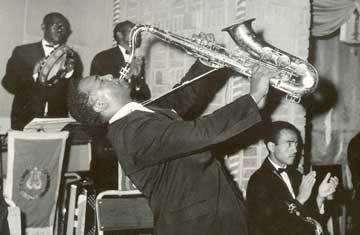Time Out New York
Issue 672 / Aug 13–19, 2008
By Mike Wolf
Photograph: Emma Fischer
This decade has been a boom time for reissued recordings, with new discoveries from the past welcomed with a fervor usually reserved for new artists. One of the most rewarding series of such music has been the Paris label Buda’s Ethiopiques, a run of CDs now comprising 23 volumes, each investigating an artist or style from Ethiopia’s rich history. The consistent quality and artwork have made Ethiopiques albums both highly recognizable and coveted by adventurous fans.
Besides the wildly diverse and alluring sounds, one interesting thing about the series is that it’s not entirely cut off from the present; many of the artists heard on the discs were recorded during the ’60s and ’70s, prior to the overthrow of Emperor Haile Selassie by a censorship-happy military junta, and some are still alive and playing. If Ethiopiques’ curator, Francis Falceto, could track them down, it was only a matter of time before equally intrepid souls checked into them as well.
You won’t find a more eagerly inquisitive group of musicians than long-running Dutch quartet the Ex. Formed in Amsterdam’s squatter-punk scene in 1979, the band has spent at least the past two decades of its career seeking out improbably fertile settings for its increasingly unclassifiable music, including collaborations with the late cellist Tom Cora and dozens of other diverse artists from around the world.
It was this sense of adventure that led the Ex to undertake a tour of Ethiopia, an apparent first for a European rock band, in 2002, a year before saxophonist and future collaborator Gétatchèw Mèkurya would become the subject of Ethiopiques Vol. 14. Members of the Ex already knew about him, though. “We found a cassette of his in Addis Ababa in 2001, and I fell in love with it immediately,” says guitarist Andy Moor. “It sounded so familiar, even though I’d never heard anything like it before.” His response is understandable: On his Ethiopiques CD, a reissue of a 1972 album, Mèkurya leads a small group through a seductive, swinging sort of jazz. A bear of a man, the saxist claimed singular status in his homeland in the early ’50s—almost a decade before free jazz emerged in the U.S.—when he began transposing Ethiopian war cries, a vocal form called shellèla, to his instrument; it’s his wild, unfettered style that makes the music so impossibly alluring. “He’s so unique,” says the Ex’s guitarist Terrie (who’s gone by just his first name since the band started). “A saxophone player you can recognize in one note.”
As it happened, Mèkurya wasn’t hard to find—he had a regular gig at the Sunset Bar in the Sheraton Addis Ababa. For the 2002 tour, the Ex played a song of his in its sets; on a return trip in 2004, the band had him onstage as a guest. “So we thought we’d invite him to our 25th-anniversary party [later that year],” Terrie says. Mèkurya was about 70, and playing for the first time in Europe. This wouldn’t be just some nice encore in the twilight of his career, though. Showing a bold streak on par with the band’s, he elevated the collaboration by suggesting they record an album, the release of which has since led to dozens more concerts, including an invitation from Lincoln Center and WFMU to play this week. “We didn’t know what to expect at all,” Terrie says about the album sessions, seemingly still bewildered. “He [recorded and] sent us ten ideas on sax, and we built our own arrangements around them. When he arrived for the recording, he was into what we’d done—but also very critical. We had to play in Ethio scales, otherwise it’s no good for him. On the other hand,” he continues with growing excitement, “we could do as much as we wanted with the music. We could play it noisy or improvised or crazy, and he appreciated all that as well.” Read More.
Related: Ethio Jazz to Rock New York with Free Outdoor Concert (Tadias)

I loved the show last nigh, it was great.
thank you so much!